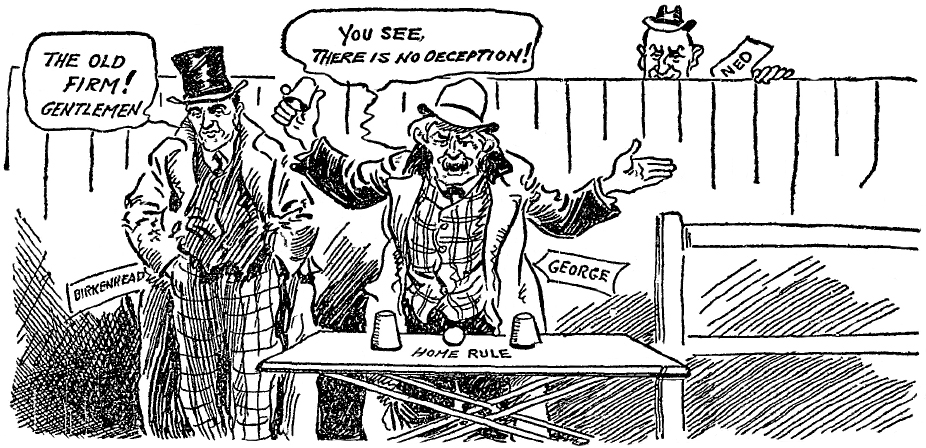Partition settlement to be ‘imposed’ on Ireland
Westminster, 15 November 1919 - The shape of the future governance of Ireland is beginning to become clear, and details that are emerging will be a cause of serious concern to many with an interest in Irish affairs.
The parliamentary correspondent of the Times (UK) reports that Walter Long’s cabinet committee on the Irish question will propose the partition of the island and the creation of two parliaments, one for Ulster and one for the rest of Ireland, with delegates from the two legislatures joined in a Council of Ireland.
The connection between the two Irish parliaments and Westminster will remain in certain administrative areas which will be divided into two categories: those that would be indefinitely controlled from London, like the military; and those that would be controlled for a short period of time, like customs and excise.
The Irish Times is severely critical of partition, and says that the necessity to ‘impose’ the plan on Ireland is a ‘grave defect’ that will fail to satisfy any strand of Irish nationalism at all. The paper argued that even the moderates of the Irish Parliamentary Party will be aghast at the proposal, their constant demand being for a ‘measure of self-government for a united Ireland’.
The unionist position
Southern unionists, the Irish Times believes, will be
condemned to a ‘position of miserable isolation in a hostile
community.’
Members of the Irish Unionist Alliance, in a letter to the same paper, say that they have always believed Home Rule to be a ‘fictitious demand’ and point to the Sinn Féin controlled ‘reign of terror’ as evidence that the ‘Celtic character knows no compromise, and England’s ultimate choice must be made between maintenance of the Legislative Union and the surrender of Ireland and Irish Loyalists to those who stand for themselves alone, to whom the Imperial idea is anathema, and who are, in fact, the avowed enemies of the Empire.’
Interviewed by the Paris-based Le Matin, leader of the Ulster Unionists Sir Edward Carson, said that the only possible future for Ireland was one which fell to a choice between the maintenance of the union or complete independence. Any intermediate solution, Mr Carson suggested, would satisfy no one and embolden those who proclaimed the case for full separation.
[Editor's note: This is an article from Century Ireland, a fortnightly online newspaper, written from the perspective of a journalist 100 years ago, based on news reports of the time.]





















